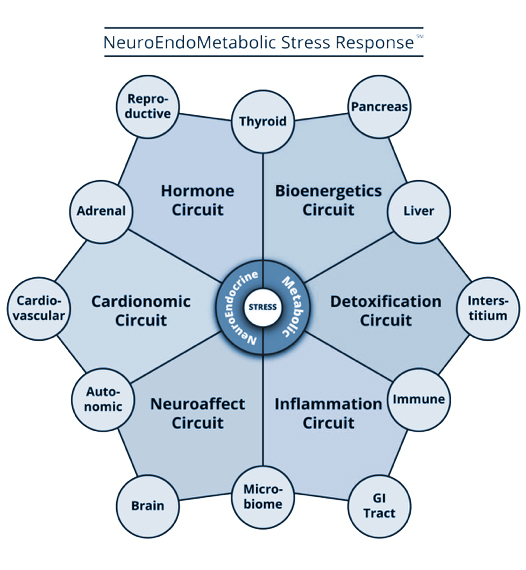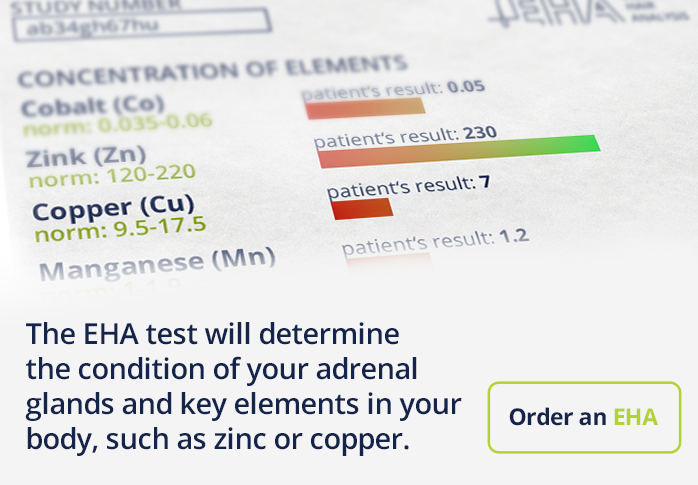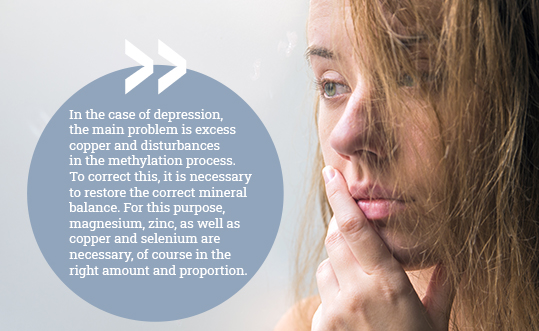 According to the World Health Organization, in 2020 depression became the second leading cause of disability in the world, after back pain and joint pain. It affects 350 million people in the world, and this is the best proof that depression is a huge problem and, at the same time, an excellent business for pharmaceutical companies that earn millions from the sale of antidepressants.
According to the World Health Organization, in 2020 depression became the second leading cause of disability in the world, after back pain and joint pain. It affects 350 million people in the world, and this is the best proof that depression is a huge problem and, at the same time, an excellent business for pharmaceutical companies that earn millions from the sale of antidepressants.
Depression usually starts innocently, with stress and anxiety that each of us experience on a daily basis. Unfortunately, not everyone can cope with mental tension, especially one that is constant and of strong (for an individual patient) intensity. In this case, instead of the usual “low” or temporary feeling of sadness, a serious mood disorder such as depression can develop.
Numerous metabolic pathways are activated in the body under stress. There are many biochemical processes that (if the body is not functioning properly) can be disturbed. Hence, depression is often combined with other accompanying disorders, such as chronic pain or intestinal problems, recurrent infections, insulin resistance, and even cancer. Unfortunately, very often we are dealing with a vicious circle trap here. Chronic, autoimmune, metabolic or cardiological diseases increase the risk of depression, which significantly reduces the quality of life; and this, in turn, can be the cause of all the above-mentioned diseases.
Unfortunately, 1/3 of the patients with depression do not respond to conventional antidepressant treatments, which certainly does not help them break out of the vicious circle in which they find themselves. The discrepancy in the perception of depression by classical and functional medicine also does not help in solving this problem. Classical medicine focuses on recognizing symptoms and eliminating them with antidepressants. Functional medicine, on the other hand, looks for the causes of depression and focuses on their reduction by means of stress control, restoring the correct sleep rhythm and understanding the patient’s genetics and epigenetics. Functional medicine in the fight against depression does not use pharmaceuticals that mask its symptoms but focuses on actions aimed at changing the factors that cause mental disorders, which include, among others, improving relations with the environment, increasing physical activity, changing eating habits, detoxifying the body, as well as strengthening the intestines and immunity. It would be hard to argue with the fact that the holistic approach to depression in functional medicine is much broader.
”Doing the EHA test and individual consultation of the result helped me introduce changes in my diet and lifestyle that really improved my psychophysical condition and made me look at the world around me differently„
Anna
Order an EHA test and check the level of elements in your organism.
It is worth noting that over the last few decades, the amount of knowledge about stress has increased significantly. Initially, it was associated only with the nervous and endocrine systems, because the hypothalamic-pituitary-adrenal axis is the main pathway leading to the development of the stress response. However, by focusing only on the nervous and endocrine systems in case of depression, we are putting out a fire in a gas stove without first turning off the gas. In other words, we would treat only its symptoms without finding and eliminating the causes.
In the 90s of the last century, a science called psychoneuroimmunology was established, which expanded the definition of stress by another element, namely the immune system. Currently, stress is perceived even more broadly as a neuroendometabolic problem, the so-called NEM (NeuroEndoMetabolic) Stress Response, i.e., a complex process in which, apart from the nervous, endocrine and immune systems, also cardiological, detoxification and bioenergetic processes are taken into account. Functional medicine also includes social relations in the concept of stress. Only when relations with the environment are correct can an appropriate reaction to stress occur.
The NEM stress response system is a combination of body organs and systems into a complex, functional network. The NEM system is a kind of protective net against the harmful effects of stress, composed of many parts. It can be compared to the electrical circuits inside a building. There are many switches in it that are responsible for its various parts, and at the same time they are interrelated and determine their mutual operation.
Depression is a disease whose symptoms are similar to those caused by excess inflammation in the body. In both cases, we observe reduced joy of life, excessive sleepiness, social withdrawal, as well as poor concentration, hypersensitivity to pain and lack of energy. In specialist literature, the similarity of depression symptoms to the symptoms of excess pro-inflammatory cytokines is often raised.
SInflammation is a direct and natural defense reaction of the body to an infection, which can be triggered by stress. Sometimes, when the inflammation caused is so strong, it leads to the destruction of the body’s tissues, which can also be observed in the case of depression. Therefore, its therapy should largely rely on anti-inflammatory effects.
There are high hopes for natural ways to reduce inflammation with diet. Positive effects are brought by the use of omega-3 fatty acids with a strong anti-inflammatory effect, as well as the avoidance of lectins in combination with the use of resveratrol, curcumin and licorice. This type of diet is also used in the case of autoimmune diseases, in which inflammatory processes are also very intense.
Stress causes the secretion of cortisol, a stress hormone produced by the adrenal glands, which is produced in greater amounts in severe situations. Overproduction of cortisol interferes with the decomposition of pregnenolone, a substance that is converted from cholesterol into progesterone and then into cortisol. To produce cortisol, the body draws on progesterone. It reduces its pool, which additionally intensifies possible inflammatory processes. In the case of depression, this is especially important, because progesterone affects the activation of GABA receptors, which are necessary for the body to calm down. The production of cortisol is also at the expense of estrogens, which are responsible for the activation of serotonin receptors. At the time of nervousness and stress, there are disorders at the level of the receptors of the two most important calming neurotransmitters, i.e., serotonin and GABA, which of course has an impact on our well-being. If we operate under severe stress, we operate on high cortisol, which also causes a blockage of the immune system. Such a prolonged situation is very unfavorable for health. In people with methylation disorders, it can lead to a defensive reaction consisting in blocking the expression of the cortisol-producing gene. This is the beginning of adrenal exhaustion, so common in people experiencing burnout. Methylation disorders are associated with polymorphisms of the MTHFR gene responsible for folic acid methylation.
Adrenal exhaustion can also occur because of copper toxicity. Weak adrenal glands inhibit the production of ceruloplasmin by the liver, which reduces the pool of bioavailable copper. Circulating free copper cannot be used. This causes an increase in free radical processes and tissue damage. The same is true of depression. Copper is an element strongly related to zinc. Absorption of copper and zinc occurs in the intestine and is dependent on methylation, i.e. the production of metallothionein proteins. Too high a level of zinc causes an increase in the methylation process, i.e., an increase in the production of proteins with affinity for copper. As a result, copper is not introduced into the body and the ratio of copper to zinc is disturbed towards excess zinc.
Copper stimulates the production of estrogens, while zinc stimulates the production of progesterone. Disturbances on this axis towards excess copper cause that we have too little progesterone, and therefore we cannot calm down and the effects of stress intensify. The dominance of estrogens is very visible nowadays, as evidenced by, among others, the growing number of patients struggling with polycystic ovary syndrome or breast cysts. Excess estrogen increases copper retention in the kidneys, which in turn interferes with the hepatic detox of estrogens. To break this vicious circle, you should avoid xenoestrogens and take care of their detox by supplementing with substances that will help in this. For this purpose, sulforaphane, i.e., broccoli extract, calcium glucarate or DIM, will work. The amount of copper should also be limited, e.g., by reducing the amount of zinc. Meanwhile, many women increase their copper levels by using intrauterine contraceptives. Others, in turn, lower the natural level of zinc by using oral contraceptives. The problem, however, is not in their use, but in ignorance of the consequences of their use. Maintaining the mineral balance of the body is possible only when we know all the sources of absorption and the factors causing the removal of elements from our body.
In conclusion, in the case of depression, the main problem is excess copper and disturbances in the methylation process. To fix this, it is essential to restore the correct mineral balance. For this purpose, magnesium, zinc, as well as copper and selenium are necessary, of course in the right amount and proportions. Currently, there are so-called methylation minerals, in specific, properly selected doses to support the methylation process.
In the case of depression, the body needs the right amount of zinc and magnesium to produce serotonin and dopamine. Zinc builds dopamine, and copper, with which zinc is strongly associated, breaks it down. If there is an excess of copper in the body, there is an excessive breakdown of dopamine. In such a situation, we feel a clear surge of energy, mood swings and anxiety, with a simultaneous lack of motivation, reduced ability to think rationally and a decrease in concentration. Hence, low dopamine levels are one of the causes of depression.
People suffering from mood disorders very often take zinc. Meanwhile, its excessive supplementation adversely affects the level of copper and iron. Therefore, in the case of depression, it is worth supplementing these three elements with a specially composed supplement containing them in appropriately selected proportions, or plan supplementation with a specialist who will adjust the doses of individual elements to a specific patient. For this purpose, it is also worth determining the exact level of elements in the body, e.g., using the EHA test. It should be borne in mind that in the case of depression, as well as all other disease states, therapy should be approached comprehensively.
Another element whose level should be paid special attention to is calcium, which in excess causes hyperactivity and excessive, uncontrolled excitement. Too much calcium enters the cells and, as a consequence, the death of neurons is caused, among others, by the presence of mercury. To ensure an adequate level of calcium, its ratio to magnesium should be examined and assessed.
Other important pairs of elements whose levels and mutual relations should be checked in relation to mood disorders and excessive excitement are lithium and sodium (a pair in which hyperactivity causes lithium deficiency), as well as sodium to potassium, whose disturbed relationship may also indicate a violation of control behavior.
Speaking of overactivity, we are talking about the abnormal course of tryptophan metabolism. A healthy body converts tryptophan to serotonin, which is when we feel happy, and then to melatonin, which is necessary for sleep. Meanwhile, as a result of stress and/or infection, the tryptophan metabolic pathway is shifted towards the kynurenine pathway. The result is the production of vitamin B3, which is designed to add energy, necessary for the body under stress or during an infection. Unfortunately, the intermediate metabolite in the production of vitamin B3 is the neurotoxic quinolinic acid, which causes excessive excitement and oxidative stress, damaging tissues at the same time. Thus, it is known that living in constant nervousness causes irreversible damage to brain tissues.
A disturbed tryptophan breakdown pathway, the kynurenine pathway, which blocks the production of serotonin, also has a direct effect on the work of the intestines. 70-80% of serotonin is produced in the intestines. Its deficiency causes various types of digestive problems and dysbiosis. A way to inhibit the abnormal tryptophan processing pathway may be to increase the aforementioned omega-3 fatty acids in the diet, as well as the use of non-steroidal anti-inflammatory drugs.
A healthy body alternately stimulates itself using glutamate, e.g., to trigger memory, and then calms down with GABA. Unfortunately, in the case of mineral imbalance, this process is disturbed. This is what the ratio of copper to zinc tells us. In the case of a deficiency of the second of these elements, we observe a lack of conversion of glutamate to GABA. We also need magnesium, another GABA receptor activator.
The question is, what can we do if the problem of depression affects us or one of our loved ones? First of all, it is necessary to diagnose whether the patient’s mineral balance has not been disturbed. The basis will be determining the ratio of zinc to copper, then calcium to magnesium, as well as sodium to potassium and the level of lithium. A good diagnostic method that we can use for this purpose is the EHA test, an analysis consisting in determining the concentration of elements from a hair sample. Thanks to the test, we will also find out what type of metabolism the patient has. In the case of depression, it will of course tend to be slow rather than fast. In this case, to help the patient save energy, we use a high-vegetable, low-protein, and low-carbohydrate diet with the inclusion of appropriate supplementation. It is also very important to perform an intestinal dysbiosis test, as well as food hypersensitivity. To start treating depression, these tests are essential. Testing the methylation status, checking the level of pro-inflammatory cytokines, testing the level of toxins and mycotoxins, hormonal tests and testing neurotransmitters may also be helpful in therapy. Let’s remember that a holistic, functional approach to depression is what can help the patient to effectively free himself or herself from it.

Autor: Dr. Anna Romaniuk – Doctor of natural sciences, microbiologist, immunologist and psychodietitian, Diet.Point 2(3)/2019, p. 32-37
















